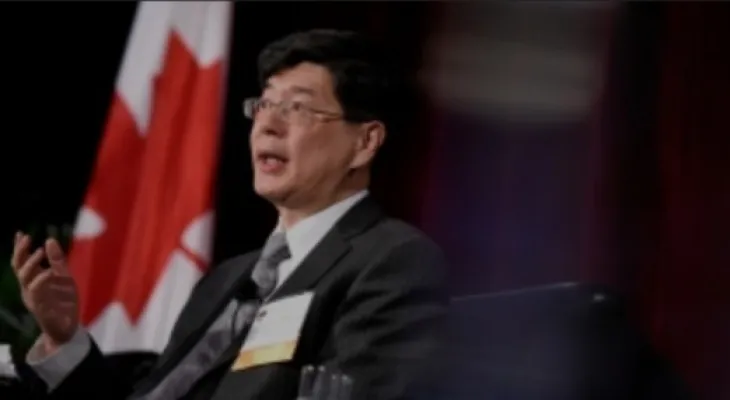Search here
Newspaper
Search here

Arab Canada News
News

Published: November 12, 2023
The Chinese ambassador to Canada said that Ottawa's allegations of foreign interference in Canadian elections harm economic relations, but he insists that his country is not punishing Canada.
His statements come after years of diplomatic tension between the two countries.
Beijing detained Canadian citizens Michael Spavor and Michael Kovrig from late 2018 until fall 2021.
At the same time, China imposed a multi-year ban on Canadian imports of meat and canola.
After a year since the Canadian government classified China as a "malign" global power and declared Beijing responsible for foreign interference attempts, the Chinese government left Canada off the list when easing group travel restrictions.
Analysts also said these moves amount to economic coercion aimed at changing Canadian policies.
But Chinese Ambassador Kong Beiyu does not see things that way - the head of a prominent business group advocating deeper trade ties said it was time to rethink.
Kong Beiyu added in an interview: "China does not use trade as a weapon to fight or punish Canada. I think if we want to get relations back on track, of course, we have to create the conditions." "The important thing here is to have a rational reading of what China looks like, and what China's policy is."
For his part, University of Ottawa professor André Laliberte rejected Kong's claim that China is not punishing Canada. Laliberte, who teaches courses on comparative politics in East Asia, said: "Simply, this is not what the evidence shows."
He added: "This is a blatant case of saying: if you want to trade with us, you have to respect our terms, for a period."
Tsong also noted that trade between the two countries continued to grow despite political tensions, with Beijing recording a 17 percent increase in Canadian exports of manufactured goods for the first eight months of 2023 year-over-year.
The China Institute at the University of Alberta attributes the rise in trade and investment to the boom following Beijing’s reopening due to Covid-19 earlier this year. In a report last month, it noted that while the Chinese economy has begun to slow, “total bilateral trade between Canada and China reached its highest level ever last year, despite intense tensions.”
These tensions also included the 1,019-day detention of Spavor and Kovrig, widely seen as retaliation for Vancouver’s arrest of Huawei CFO Meng Wanzhou under a U.S. extradition request.
During that time, China banned Canadian canola and pork imports citing concerns about unspecified pests. The beef ban dating back to December 2021 remains in place, despite other countries lifting the temporary measure within months of an atypical case of mad cow disease being discovered in Alberta.
In August, China excluded Canada when it lifted the ban on outbound group tourism due to Covid-19. The Chinese embassy in Ottawa said this was because the Liberal federal government "exaggerated" the issue of foreign interference. This was despite government-to-government talks aimed at increasing flights between the two countries.
In September, Ottawa appointed a judge to lead a public inquiry into foreign interference in federal elections and democratic institutions, with a mandate targeting “China, Russia and other foreign countries or non-governmental actors.”
In an interview on October 20, Kong suggested Canada look for common interests instead of manufacturing disputes.
He also added: "We hope and urge the Canadian side to have a rational perception of China and also to do things that work with the Chinese side in the same direction, and to do things on the basis of mutual respect and look for common ground while setting aside differences." Creating a better climate - instead of engaging with those who place new obstacles to improving relations."
Linette Ong, a senior China expert at the Munk School of Global Affairs and Public Policy at the University of Toronto, said Beijing has a "very subtle" way of retaliating against countries that do not cooperate, by banning imports for arbitrary reasons.
"They use excuses, or reasons like arbitrary health reasons. They might say that Canadian beef, pork, and canola oil products do not meet certain health requirements – and they are responsible for all tests, so... there is nothing Canada can do," Ong, who is also a non-resident senior fellow at the Asian Society Policy Institute, said. "They actually do that."
Comments